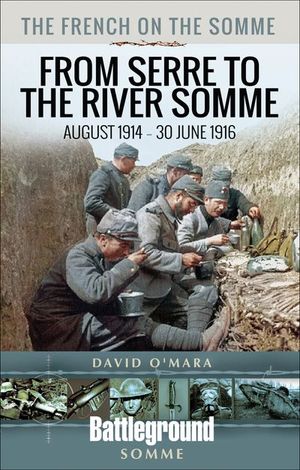The French on the Somme
Published by Pen & Sword Books
For many British visitors, the fighting in the Somme starts on 1 July 1916 and few consider what happened in the area before the British took over the line, part in later 1915 and some in 1916.In fact there was extensive fighting during the opening phase of he war, as both the French and Germans tried to outflank each other. Through the autumn and winter there was a struggle to hold the best tactical ground, with small scale but ferocious skirmishes from Beaumont Hamel to the Somme.The conflict in what became known as the Glory Hole, close to the well known Lochnagar Crater, was particularly prolonged. Evidence of the fighting, mainly in the form of a large mine crater field, is visible today. The underground war was not confined to la Boisselle, with a similar crater field developing on Redan Ridge; whilst south of the Somme, to be covered in a future volume, great lengths of No Man's Land were dominated by mine craters.Serre, best known to British readers for its association with the Pals Battalions on 1 July 1916, witnessed a significant, if local, French offensive in June 1915, with casualties running into the several thousands. It is a battle that has left its mark on the landscape today, with a French national cemetery and a commemorative chapel acting as memorials to the battle.The book is introduced by a chapter describing the role of the area in the Franco-Prussian War of 1870-71, a war which arguably provided the seed bed for the outbreak of war in 1914. Several battles were fought in Somme villages that were to become the victims of war all over again forty plus years later.
BUY NOW FROM
COMMUNITY REVIEWS

